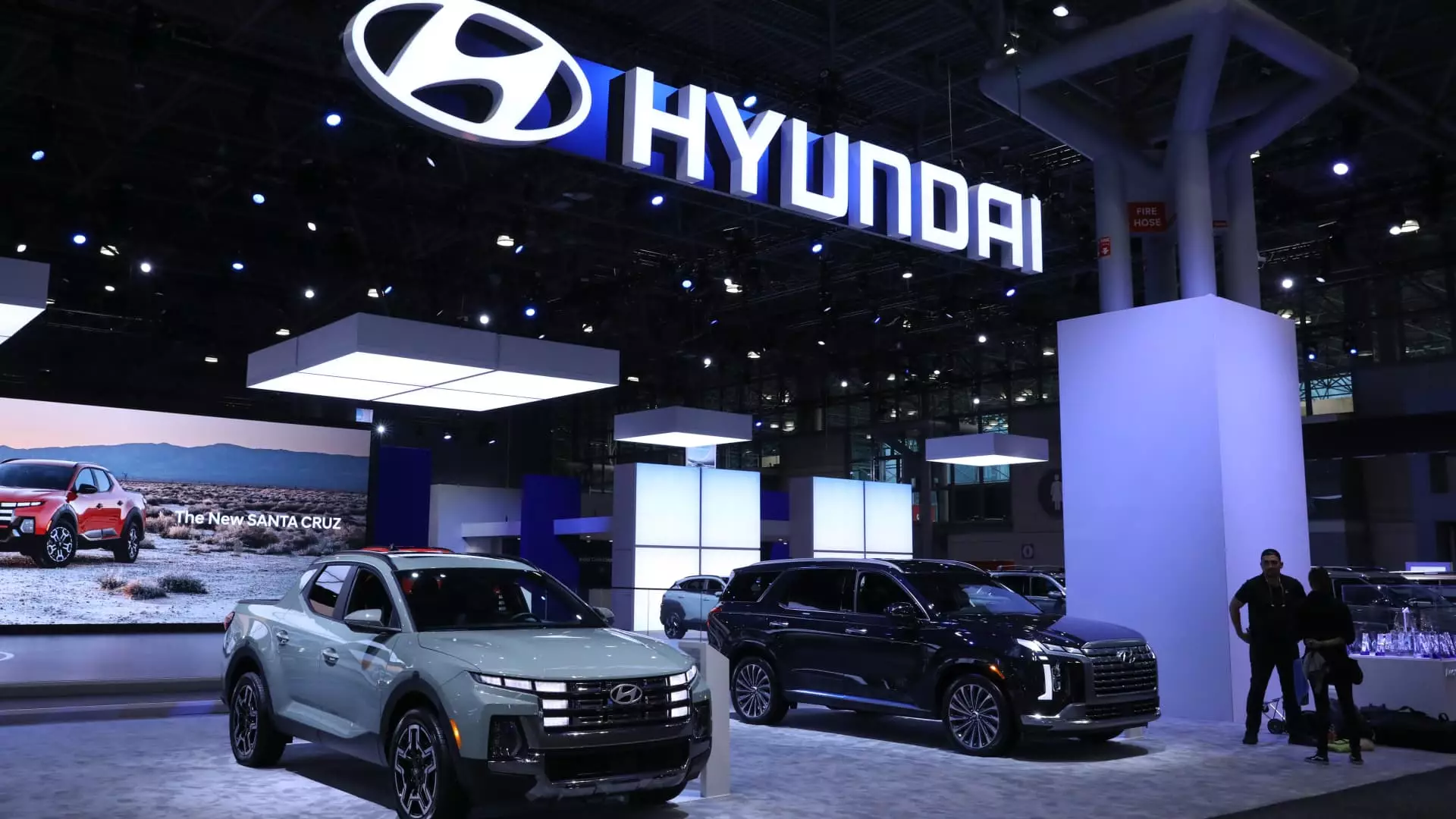In an era defined by economic fluctuations and political tensions, Hyundai’s decision to invest $20 billion in U.S. manufacturing signals a profound shift in global business strategy. This commitment includes a $5 billion steel plant in Louisiana, poised to employ around 1,500 workers. While some may perceive this as just another corporate maneuver, it represents a pivotal moment in South Korea’s economic ties with the United States, especially at a time when industries are scrambling to adapt to renewed tariffs and trade challenges.
Reclaiming Manufacturing: A Necessity, Not a Choice
Hyundai’s strategy underscores an undeniable reality: the need for U.S. manufacturers to localize production to mitigate tariff-related costs. CEO José Muñoz candidly noted that the best route for Hyundai is to enhance its localization efforts. This plan isn’t merely a corporate decision; it’s a response to an impending trade war that could significantly impact the automotive sector. By investing in U.S. soil, Hyundai is proactively shielding itself from uncertainties that loomed under Trump’s administration. As tariffs remain a contentious issue, this investment is a lifeline for companies aiming to maintain competitive pricing without sacrificing quality.
The Electric Vehicle Race Intensifies
Hyundai’s forward-thinking approach comes at a critical juncture as electric vehicle (EV) demand surges. As one of the top sellers of EVs in the U.S., Hyundai recognizes that producing next-generation steel locally will streamline supply chains and enhance production efficiency for their two existing auto plants in Alabama and Georgia. With announcements of a third assembly plant imminent, the company is cementing its status as a formidable contender against market leader Tesla. The implications for consumers are significant; as more manufacturers invest in local production, competition drives down prices and enhances innovation.
South Korea and the Trade Narrative
Yet, this investment isn’t without its contradictions. The U.S. maintains a trade deficit with South Korea, highlighting the complexities of their economic relationship. Trump’s rhetoric about South Korea’s high tariffs draws attention to an imbalance that Seoul disputes. Current effective tariff rates are low, suggesting that the narrative of high tariffs may be overstated. As both nations navigate these choppy waters, Hyundai’s substantial investment could become a bargaining chip for a more equitable trade framework.
Implications for Job Creation and Local Economies
The announcement of major job creation in Louisiana is one aspect where Hyundai deserves commendation. In a time when many Americans face job insecurity, the introduction of 1,500 positions could revitalize local economies and foster community growth. Moreover, jobs in advanced manufacturing tied to EV production are critical for increasing the nation’s technological prowess. This investment is more than just financial; it represents a commitment to the American labor force and innovation in an increasingly competitive global market.
By taking a bold stance on onshoring, Hyundai not only aims to protect itself from tariffs but also positions itself at the forefront of America’s electric vehicle future. This investment has far-reaching implications, promising to deliver both economic growth and technological advancement that will shape the landscape for years to come.

